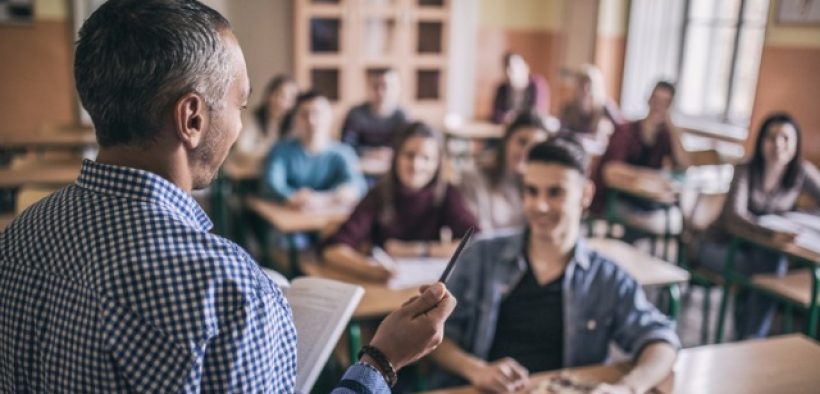Teacher power has to do with the ability to influence student behaviors and, ultimately, what they learn and how much. My colleagues and I often lament that it is more difficult to influence student behaviors than it used to be. Much of what we know about power in the classroom is grounded in some rather outdated, but at the time useful, assumptions. In traditional classrooms, students used to submit to teacher authority with little resistance. Back then teachers influenced students to do things they would not have otherwise done by:
- Promising rewards or punishments
- Suggesting “I’m an expert, and this is what works for me, so you should try it too”
- Asserting the authority inherent in their title, “teacher”
- Developing good relationships with students as a way of encouraging them to comply
- Managing their classrooms with policies and structures that force students to be on-task (like banning the use of laptops or tablets, side talking, absenteeism, or tardiness)
More recent research, verified by what many of us are now experiencing, focuses not on ways to maintain power in the classroom, but on the variety of ways that students dissent, challenge, and ignore attempts to influence them. Students openly use phones and tablets to text and access social media for purposes unrelated to the class. A growing body of research documents widespread disruptive and confrontational student behavior that challenges and undermines teacher credibility. Many students see themselves as customers, rather than learners, and feel entitled to manage their college experience as they see fit, which may be quite different from what the teacher envisions. Students also resist teacher authority with their own power. They complain to administrators, nag, blame us for circumstances of their own making, and then ask for exceptions to policies.
My research focuses on revisiting some of the assumptions about teacher power and how we communicate it to students. Student focus group responses to the questions I asked are potentially discouraging and disturbing. Students told me that they have trouble identifying with us. They don’t see the value of developing relationships with us that could be influential to their learning or personal development. Many see us as employees paid to transmit knowledge as a commodity. They reveal their own elaborate strategies for resisting teacher influence and avoiding some of the heavy lifting deep learning requires.
Although some will see these student views as frustrating and any teacher response futile, the very best among us will view them as valuable information that we can use to rethink the nature of our power with a new generation of students. Here are some of the lessons I’m learning from these focus groups.
- Power is not about bossing students or having an inflated sense of self-as-teacher. It’s about influencing students to engage, motivating them to learn, and challenging them to connect the dots of course content to their lives. You can’t mandate this with a policy or statement in the syllabus.
- Influencing students involves more than classroom management. Our students are interning, working, volunteering, socializing, playing, and competing. The teacher’s job now also includes influencing students to engage and think about the material between class sessions in the midst of these many other activities.
- Our traditional “power” is waning because students don’t necessarily value “knowledge for knowledge’s sake.” Instead of fighting this, we can begin rewarding students with an understanding of how course content will help them secure employment, generate income, or contribute to some other applied outcome. I believe we can do this and still advance the educational goals we hold dear.
- We need to influence students by being as considerate of them as we wish them to be of us. Yes, their bosses will one day make unreasonable demands of them. But routinely acting like the demanding boss will make your class an oppressive rather than engaging space. And it will quickly make you tired of teaching. On the other hand, don’t be a marshmallow. Be savvy and recognize that some students will try to take advantage of your friendly, social style.
In the early days of teacher power research, student compliance (which refers to behaving in a certain way without necessarily internalizing the value of doing so) was the goal. My findings indicate that student compliance may be an outdated expectation for contemporary teachers. Instead, we need to move in the direction of using influence to engage students. I’m working to challenge my students to incorporate my course material into their lives beyond our class. I believe our influence will be the greatest when we make the payoffs of engagement clear and model passion for our courses.
Dr. Jennifer H. Waldeck is an associate professor in the School of Communication at Chapman University, where she is director of the Graduate Teaching Associate and Basic Communication Curriculum programs. She also serves on the Teaching Professor Conference advisory board.






